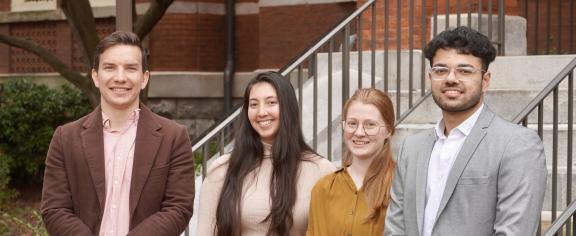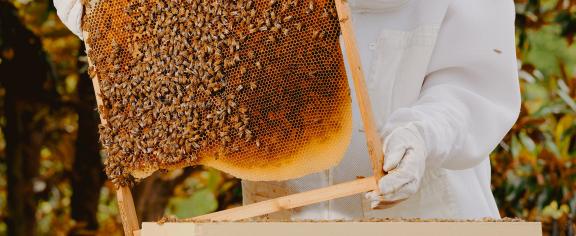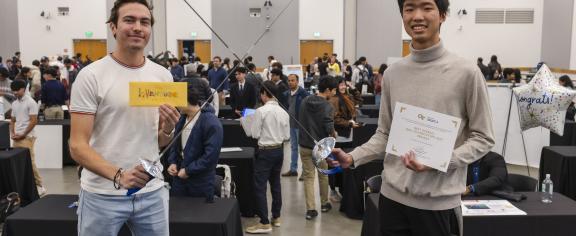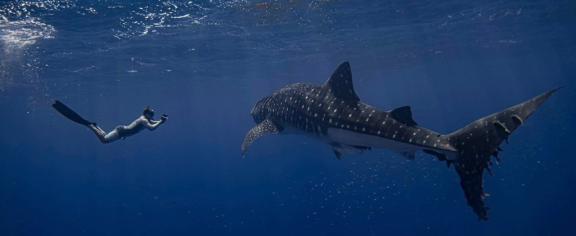2026-01-15
Four graduate students from the College of Sciences were selected for the new Community Engagement Graduate Fellowship, made possible through a gift from Google, to develop projects that positively impact the metro Atlanta area.
2025-12-10
Yunan Luo is the recipient of an NSF Faculty Early Career Development (CAREER) award to use artificial intelligence to solve the protein annotation inequality problem.
2025-12-16
Marketer-turned-beekeeper Deb DeWitt serves as Georgia Tech's Beekeeper in Residence and receives the Georgia Beekeepers Association’s Beekeeper of the Year Award.
2025-11-24
By uniting expertise and resources, Georgia’s leading institutions are creating practical solutions to improve health outcomes across the state.
2025-11-04
Georgia Tech’s Fall 2025 I2P Showcase will feature over 60 student prototypes tackling real-world challenges.
2025-10-15
The award will support Stroud as he creates evolution’s first high-definition map — with the help of 1,000 backpack-wearing lizards.
2025-10-13
“This course truly underscores Georgia Tech’s commitment to pioneering meaningful undergraduate experiences,” says teacher Vinayak (Vinny) Agarwal. “No other peer institution I know of is exposing undergraduates to bioinformatics at this level.”
2025-07-24
Experts say that more accurate depictions of sharks can help protect them and highlight their role in global ecosystems.
2025-07-03
Shriners Children’s will open a $153 million pediatric medical research facility at Science Square, becoming the largest tenant in the development and contributing to Georgia Tech’s growing role in Atlanta’s life sciences sector.
2025-06-18
Georgia Tech and Emory University are advancing Atlanta’s position as a top U.S. tech hub by relocating seven pioneering biomedical research labs to Science Square, a premier life sciences district driving innovation, talent, and economic growth.






